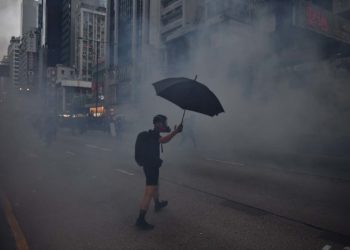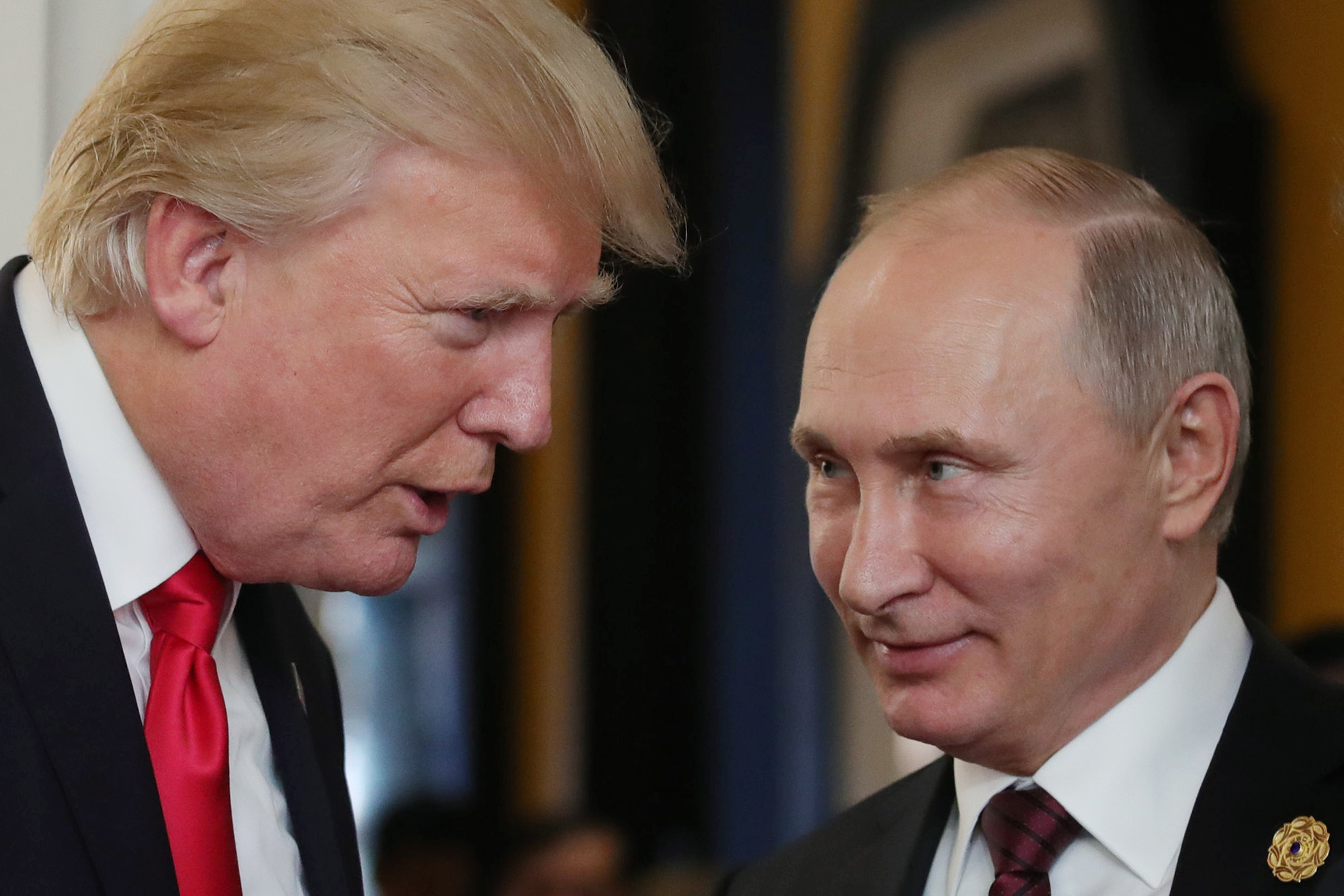New Madrid County, Missouri is the kind of place the administration of Donald J. Trump had in mind when enacting tariffs to protect domestic manufacturers.
“Tariffs greatly enhanced the ability to reopen the plant,” County Clerk Clement Cravens told The Globe Post. An aluminum smelting plant that was once closed could once again supply jobs to the community as Magnitude 7 Metals. While it may seem as though the mission of the tariffs was accomplished, the reality is far more complicated.
Despite the rhetoric that tariffs will fix the problems facing American manufacturers in many industries, the Trump administration’s policies have led to mixed results for workers and companies.
Closing America’s trade deficit with China and the European Union had been Trump’s one of the most important election campaign promises. For over a year, he made clear to Canada, European nations and China that Washington would do whatever it takes to restore fair trade, including higher tariffs, raising the specter for potential trade wars.
“We’re going to help companies, and they’re going to help you,” Trump exclaimed in a rally for autoworkers in Michigan. “The assault on the American auto industry is over.”
Trump’s optimistic promises came just days after announcing a tariff on steel and aluminum, which experts argue would be detrimental to the automotive industry. The Council on Foreign Relations estimates that the tariff could cause 18,000 to 40,000 autoworkers to lose their jobs by 2020 because of increased prices to produce cars.
“Given that employment in the U.S. auto industry is vastly higher than in the U.S. steel industry, such job losses would swamp any possible increase in steel employment,” Benn Steil and Benjamin Della Rocca wrote in a blog post for the CFR.
Their predictions of negative impacts on the auto industry are already proving to be accurate.
“New U.S. tariffs on steel and aluminum increase the cost of U.S. vehicle production,” a Mercedes-Benz spokesperson told The Globe Post in a statement. “We monitor the situation closely and are ready to take the appropriate measures.”
The measures, potentially necessary for every car manufacturer in the U.S., could include anything from increased consumer prices to laying off workers.
“These proposed tariffs on steel and aluminum imports couldn’t come at a worse time,” said American International Automobile Dealer Association President and CEO Cody Lusk in a statement. “Auto sales have flattened in recent months, and manufacturers are not prepared to absorb a sharp increase in the cost to build cars and trucks in America. The burden of these tariffs, as always, will be passed on to the American consumer.”
The steel tariffs, which caused much anxiety to the auto industry, were followed by a Section 232 Investigation to consider the effect of car imports on national security. Section 232 of the Trade Expansion Act of 1962 gives the executive branch the power to determine the threat that certain imports may pose to the nation and will include domestic capacity and production to meet national defense requirements, as well as losses of skills or investments in the national economy.
In short, it is the consideration for more tariffs. The same type of investigation was a precursor to steel and aluminum tariffs. The auto industry, hurt by steel tariffs, is now arguing for protections for its businesses as well.
“We hope the Trump Administration will take targeted measures to boost domestic manufacturing and strengthen our economic and national security for this and future generations,” the United Automobile, Aerospace and Agricultural Implement Workers of America said in a public comment on the investigation.
The tariff consideration was further publicized as Trump tweeted that he would place a 20 percent tariff on all European cars coming into the U.S. unless the “tariffs and barriers” against American exports were removed.
Based on the Tariffs and Trade Barriers long placed on the U.S. & its great companies and workers by the European Union, if these Tariffs and Barriers are not soon broken down and removed, we will be placing a 20% Tariff on all of their cars coming into the U.S. Build them here!
— Donald J. Trump (@realDonaldTrump) June 23, 2018
Car manufacturers that were suggested targets of the tariffs would have an impact on American workers and consumers, too. The largest BMW plant in the world is in South Carolina; Volvo built a $1.1 billion plant in the same state.
Some Senators, including Bob Corker, believe the Trump administration is using national security as an excuse to quickly create new executive policies without oversight.
“If the president truly believes invoking Section 232 is necessary to protect the United States from a genuine threat, he should make the case to Congress and to the American people and do the hard work necessary to secure congressional approval,” Corker said.
Congress was once in charge of deciding tariffs, but abdicated much of that power to the executive branch over several decades, according to Vox. Congress is the governing body that should oversee the now-presidential power if the president is not “cosmopolitan” in looking out for the national interest, according to Merit Janow, a professor at the University of Colombia.
Other senators are expressing doubts over the efficacy of the aluminum and steel tariff itself. Senator Pat Toomey explained that the tariff would be “harmful to his state,” saying “it hasn’t done great damage yet, but it has the potential to do that.”
Senator Roy Blunt, who represents New Madrid County and Missouri, had similar concerns.
“We have a lot more people dependent on getting steel for the jobs they have than people that make steel,” Blunt said.
Before the full effects of previous tariffs were manifested, the Trump administration enacted more. On July 6, the United States levied a tariff on $34 billion worth of Chinese goods. China immediately retaliated with tariffs of “the same proportion and of the same scale, the same intensity,” according to Cui Tiankai, China’s ambassador to the U.S.
The retaliatory tariffs affect a broad range of exports, many of which are agricultural, especially counties that voted for Trump in 2016.
The Trump administration escalated the dispute on Tuesday, threatening a new 10 percent tariff on $200 billion of Chinese exports. The latest tariffs indicate that the U.S. will not stand for China’s what the administration said “unfair trading practices.” Though experts do not agree on outcomes of this measure, there is doubt about its effectiveness.
“We have serious and legitimate issues with China,” Vice President for Greater China at the U.S. Chamber of Commerce Jeremie Waterman said at the Information Technology and Innovation Foundation event. “Tariffs are not the right approach.”
Others disagreed.
“It’s possible the tariffs can have an effect, but that doesn’t mean other tools shouldn’t be applied,” Director of the Center on Chinese Strategy at The Hudson Institute Michael Pillsbury said at the same event.
While the impact of the tariffs on China is unknown, some impacts are already being felt by U.S. citizens.
“These tariffs are driving the prices on our products down considerably,” Vice President of The Missouri Soybean Association and farmer Ronnie Russell said to The Globe Post.
China, as the second largest market for U.S. agriculture exports, has the ability to alter farmers’ economic outlook. Every third row of soybeans produced on Russell’s farm is shipped to China. When the discussion of tariffs began, his prices dropped by 20 percent.
“The importance of China as a market for soybeans has been driven by an explosion in demand for meat as consumers switch from a diet dominated by rice to one where pork, poultry, and beef play an important part,” Ian Sheldon, professor of agricultural economics at Ohio State University, explained. Soybeans are an important source of protein in raising livestock, leading to increased demand for the often-imported produce.
“This isn’t a political issue,” insisted Russell. “This is really just a policy issue.”
Farmers exist across the political spectrum, and many are willing to “take one for the team” if it means that trade with China is fairer down the road, Russell said. “Farmers are resilient.”
The tariffs would not just affect the 2 percent of the population that produce food, but everyone, Russell explained. Consumers are expected to see delayed price increases.
There are many factors that determine how long any particular farmer can survive the price drops, Russell said. Soybean farmers have not been able to sell the crop at a profitable margin for several years, and the tariffs bring the price to a 10-year low.
“On a personal level, it makes you wonder how you’re going to survive in the farming business,” Russell lamented. “That’s what wakes me up in the middle of the night.”
The same area that reaped the benefits of the aluminum and steel tariff, New Madrid County, will now see the other side of such policies. Many farmers in the county rely on the profitability of soybeans to pay the bills. Harrowing changes in the marketplace leave the struggles of manufacturers and farmers in the region, and all around the nation, unresolved.





















